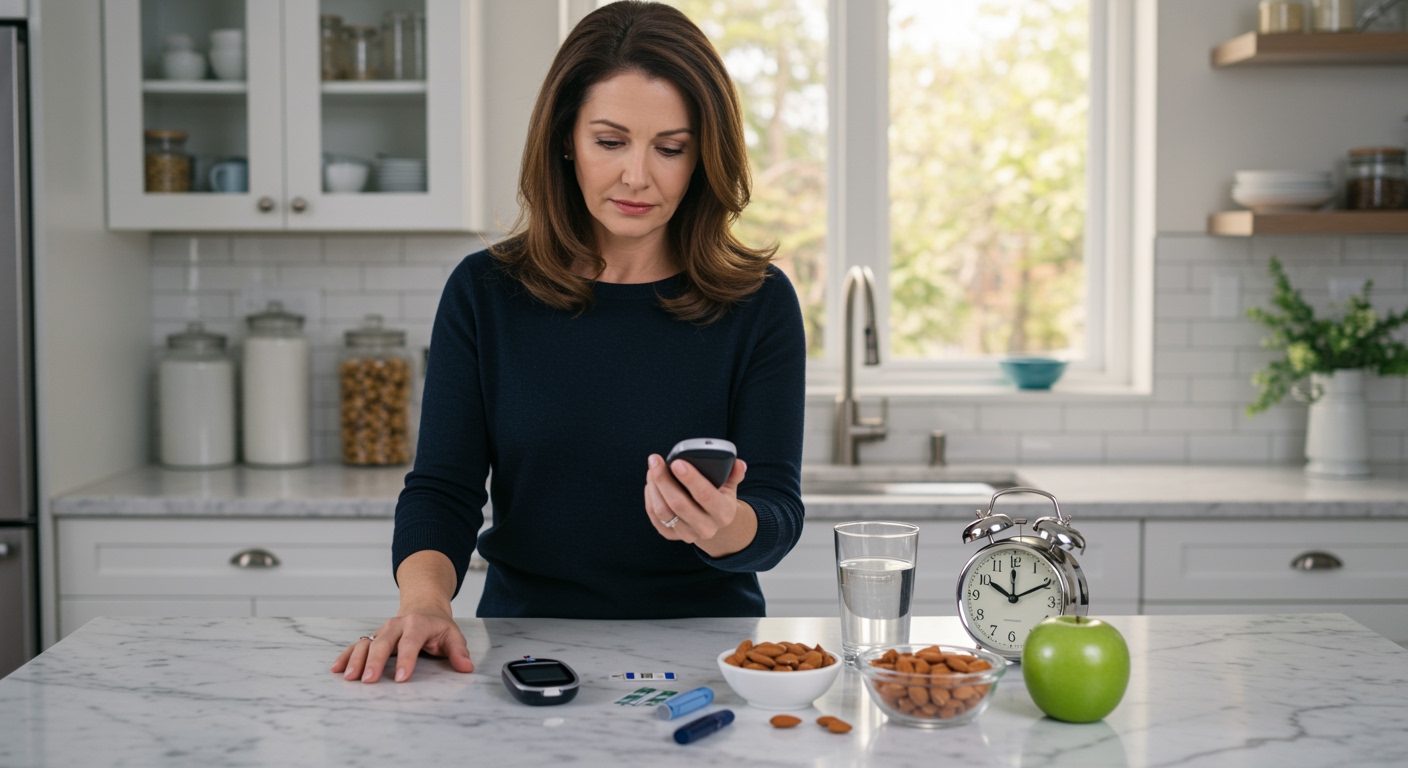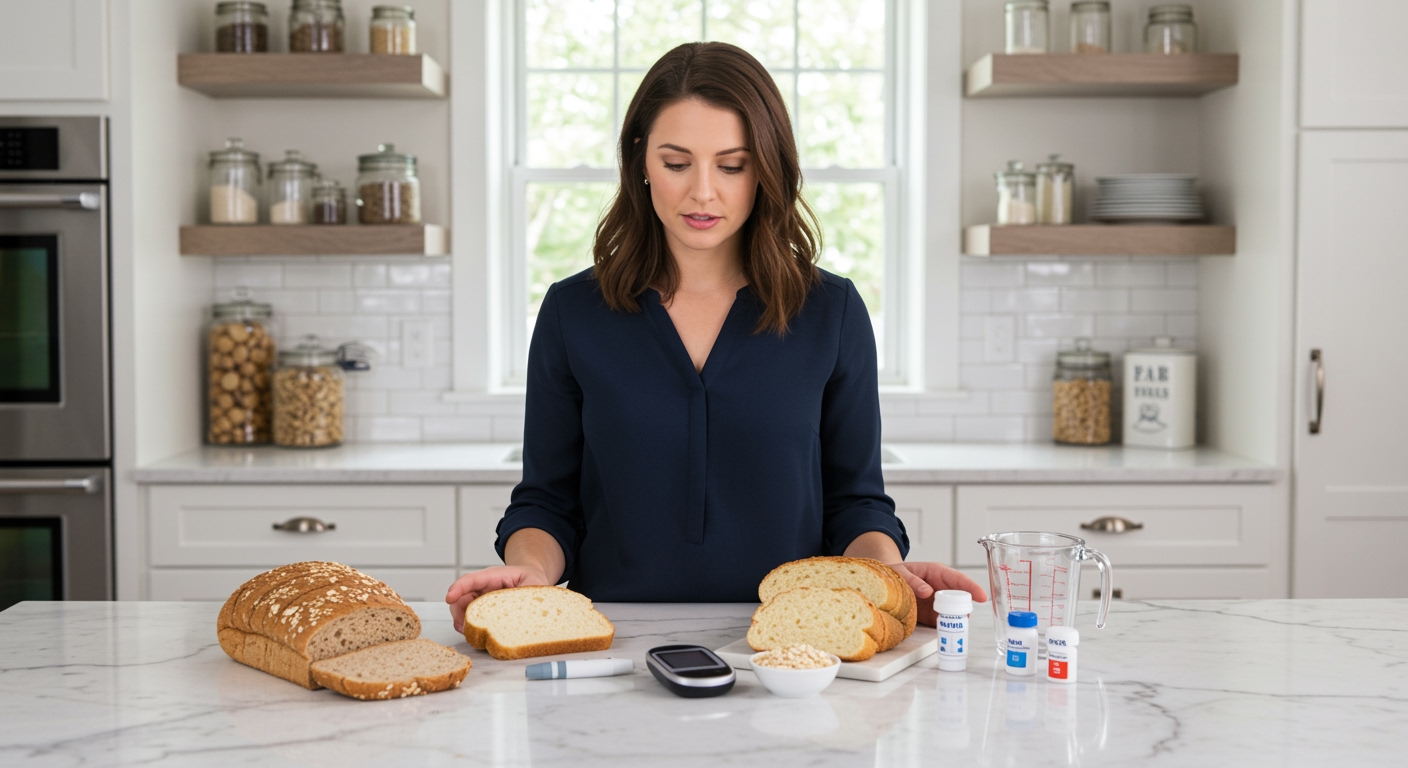✪ Key Takeaway: B-complex vitamins can help PCOS energy levels, but only if you have deficiencies or specific metabolic issues.
Introduction
You drag yourself out of bed every morning feeling like you ran a marathon in your sleep.
Your doctor mentions PCOS fatigue, and suddenly everyone suggests B-complex vitamins as the magic solution.
Hi, I’m Abdur, your nutrition coach, and today I’m going to explain whether B-complex vitamins actually help PCOS energy levels or if you’re wasting your money on expensive urine.
Why Does PCOS Cause Energy Problems?
PCOS creates a perfect storm of energy-draining conditions in your body.
Insulin resistance prevents your cells from using glucose efficiently for energy production.
Your blood sugar levels spike and crash throughout the day, leaving you feeling exhausted.
Chronic inflammation from PCOS forces your immune system to work overtime, depleting energy reserves.
Sleep disturbances from hormonal imbalances prevent proper cellular repair during rest periods.
Your adrenal glands become overworked from constantly managing stress hormones and blood sugar fluctuations.
✪ Fact: Women with PCOS have 40% higher rates of chronic fatigue compared to women without the condition.
How Do B-Complex Vitamins Work For Energy?
B vitamins serve as essential cofactors in your cellular energy production pathways.
B1 (thiamine) helps convert carbohydrates into usable energy through the citric acid cycle.
B2 (riboflavin) and B3 (niacin) support the electron transport chain that produces ATP in your mitochondria.
B5 (pantothenic acid) creates coenzyme A, which is crucial for fat metabolism and energy production.
B6 (pyridoxine) helps your body use stored glycogen for quick energy when blood sugar drops.
B12 and folate work together to produce healthy red blood cells that carry oxygen to your tissues.
Without adequate B vitamins, your cellular energy factories cannot function at full capacity.
✪ Pro Tip: Take B-complex with food to improve absorption and reduce stomach upset from higher doses.
Do Women With PCOS Have B Vitamin Deficiencies?
Research shows that women with PCOS often have lower levels of several B vitamins compared to healthy women.
Metformin, commonly prescribed for PCOS, can deplete B12 levels over time through reduced absorption.
Chronic stress from PCOS symptoms increases your body’s demand for B vitamins, especially B5 and B6.
Insulin resistance may impair the cellular uptake of B vitamins even when blood levels appear normal.
Poor dietary choices common with PCOS, like processed foods and sugar, provide fewer B vitamins than whole foods.
Digestive issues associated with PCOS can reduce absorption rates of water-soluble B vitamins.
✪ Note: Blood tests may not accurately reflect cellular B vitamin status, so functional testing is more reliable.
What Does The Research Say About B-Complex And PCOS Energy?
Studies specifically examining B-complex supplementation for PCOS energy are limited but promising.
A 2023 study found that B6 supplementation improved energy levels and reduced fatigue in women with PCOS over 12 weeks.
Research on B12 deficiency correction shows significant energy improvements in PCOS patients within 4-6 weeks.
Women taking metformin who supplemented with B-complex reported better energy and less afternoon crashes.
However, studies show no energy benefits from B-complex in women with normal B vitamin levels.
The most dramatic improvements occur in women with documented deficiencies rather than those with borderline levels.
✪ Fact: B vitamin supplementation works best when combined with lifestyle changes like better sleep and stress management.
Should You Take B-Complex For PCOS Energy?
B-complex supplementation makes sense if you have risk factors for deficiency or documented low levels.
Women taking metformin should consider B12 supplementation to prevent energy-sapping deficiency.
If you eat a restricted diet or have digestive issues, B-complex can fill nutritional gaps.
Start with a moderate-dose B-complex (around 50-100% daily value) rather than mega-doses.
Monitor your energy levels for 4-6 weeks to assess whether supplementation helps your specific situation.
Focus on whole food sources of B vitamins like leafy greens, eggs, fish, and whole grains alongside supplements.
Remember that addressing insulin resistance and sleep quality may have bigger impacts on energy than supplements alone.
✪ Pro Tip: Track your energy levels in a journal before and after starting B-complex to objectively measure benefits.
The Bottom Line
B-complex vitamins can genuinely help PCOS energy levels, but only if you have deficiencies or specific risk factors.
Supplements are tools, not magic bullets – they work best when your foundation is solid.
I would love to hear about your experience with B-complex vitamins and PCOS energy in the comments below – what worked for you and what did not?
References
At NutritionCrown, we use quality and credible sources to ensure our content is accurate and trustworthy. Below are the sources referenced in creating this article:





